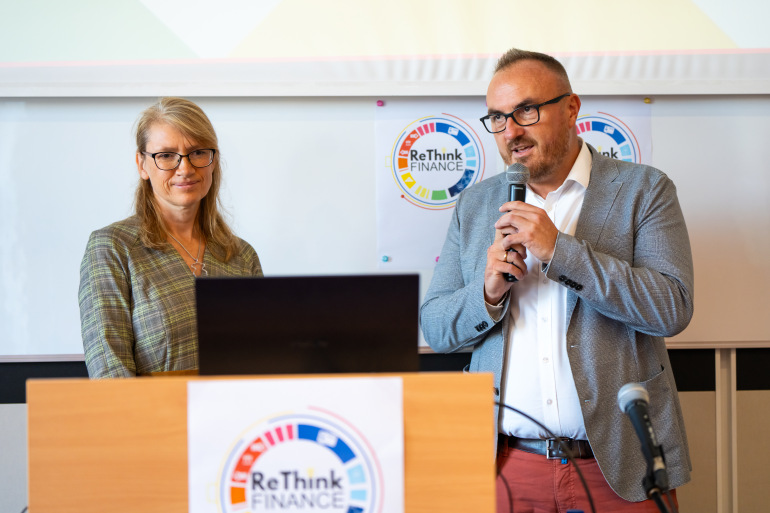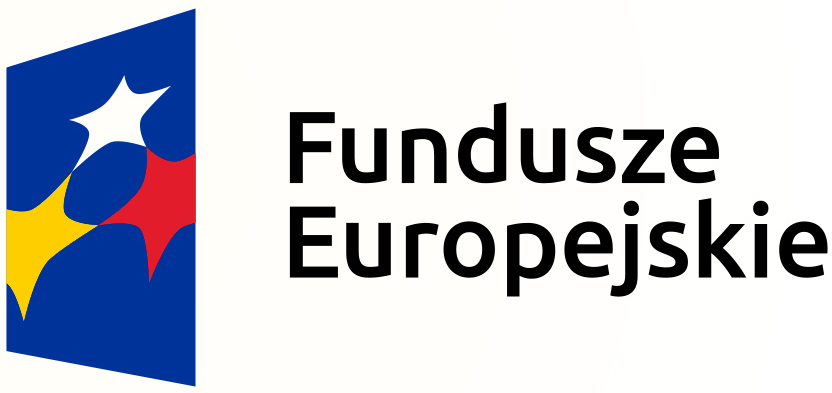Faculty of Economics finishes important international project

For nearly three years, researchers and students of the Faculty of
Economics of the UO have worked together with foreign partners on curricula
that integrate modern educational methods into the study of finance. It has
resulted in several innovative curricula and two books that are unique in
Europe. One of the final highlights of the project was an international
conference organised by the Faculty of Economics.
“The world of finance is changing dynamically, the paradigms which have functioned in this world so far require a new analysis in the context of both teaching and science,” explained Marta Maciejasz, PhD, DSc, Associate Professor at the UO, Director of the Institute of Economics and Finance, who led the project at the University of Opole. “The key objectives of the project are based on two pillars: supporting the digital capabilities of higher education and supporting teaching and learning,” she added.
International consortium
ReThink Finance - integrating innovative
paradigms and digital technologies into financial teaching and literacy programme
was organised within the framework of the Erasmus+ Programme, Key Action 2
Cooperation Partnerships - Higher Education Sector.
The University of Opole was part of the international consortium, cooperating
with Lucian Blaga University in Sibiu, which was the project leader, as well as
the University of Las Palmas de Gran Canaria and the University of Siena.
Alongside the universities, the Romanian Bold Technologies SRL and the Belgian
Institut de Haute Formation aux Politiques Communautaires were also project
partners.
One of the two main objectives of the project was to develop digital skills
of university teachers to integrate modern teaching methods using digital
technologies into the curricula. The other, aimed at students, was to develop
their competences in the innovative fields of finance (digital finance,
behavioural finance, neurofinance, financial simulation) and to integrate the
current software used in practice in their activities, in order to better enter
the labour market in the future.
From traditional finance to neurofinance
The project started in January 2022 and will end in January 2025. To date, more than 100 students and 25 academics have participated in the summer schools, workshops and staff training. The international conference organised on Wednesday (18 September) by the UO Faculty of Economics was one of the final touches and also a summary of the project.
“During the course of our work, it became apparent that there was a
widespread conviction among representatives of all the universities
participating in the international consortium that finance-related curricula
need to be refreshed and brought up to state-of-the-art standards. After all,
we live in times of rapid changes in financial systems or payment concepts,”
explained Dr Robert Poskart, Deputy Director of the Institute of Economics and
Finance at the Faculty of Economics of the UO, co-host of the Opole conference,
who is also responsible for the implementation of the project at the University
of Opole.
During the project, not only were new curricula prepared, but also the students' knowledge of modern finance was broadened. “We tried to present this knowledge in the most useful way possible. The more practice-like simulations, the more students get out of it. Learning from textbooks and the lack of opportunities to apply knowledge in practice is the Achilles' heel of the education system,” emphasised Dr Poskart.
Over the three years of the project, training on the development of digital competences and modern teaching methods has been provided for academic teachers. During summer schools and workshops, students explored phenomena related to digital finance or issues such as neurofinance. “We explained to students how our emotions translate into financial decisions, and such decisions, after all, have a huge impact on our future,” explained Marta Maciejasz, Phd, DSc, Associate Professor at the UO, Director of the Institute of Economics and Finance.
Students also covered topics such as: FinTech or blockchain. Summarising the effects of the project, four main areas were identified:
- Development of digital skills and modern teaching methods for economics teachers,
- FinTech: digital finance and blockchain,
- From traditional finance to neurofinance,
- Business valuation and financial simulations in global markets.
Curricula, sets of training materials, or virtual training courses have been created for each of these areas.
Two books summarising three years of work by researchers and students will
also be published soon. In terms of e-learning, academics will be provided with
a kind of guide to modern digital teaching: Essential
Teaching Practices in the Digital Era. The second proposed book will be
entitled ReThink Finance: Changing
paradigms in finance - from traditional finance to digital and neurofinance.
Both books will be available online.
“It was a time of very intensive work, there was a lot going on, and all the
outcomes add up to a coherent whole,” summed up Prof. Maciejasz.



